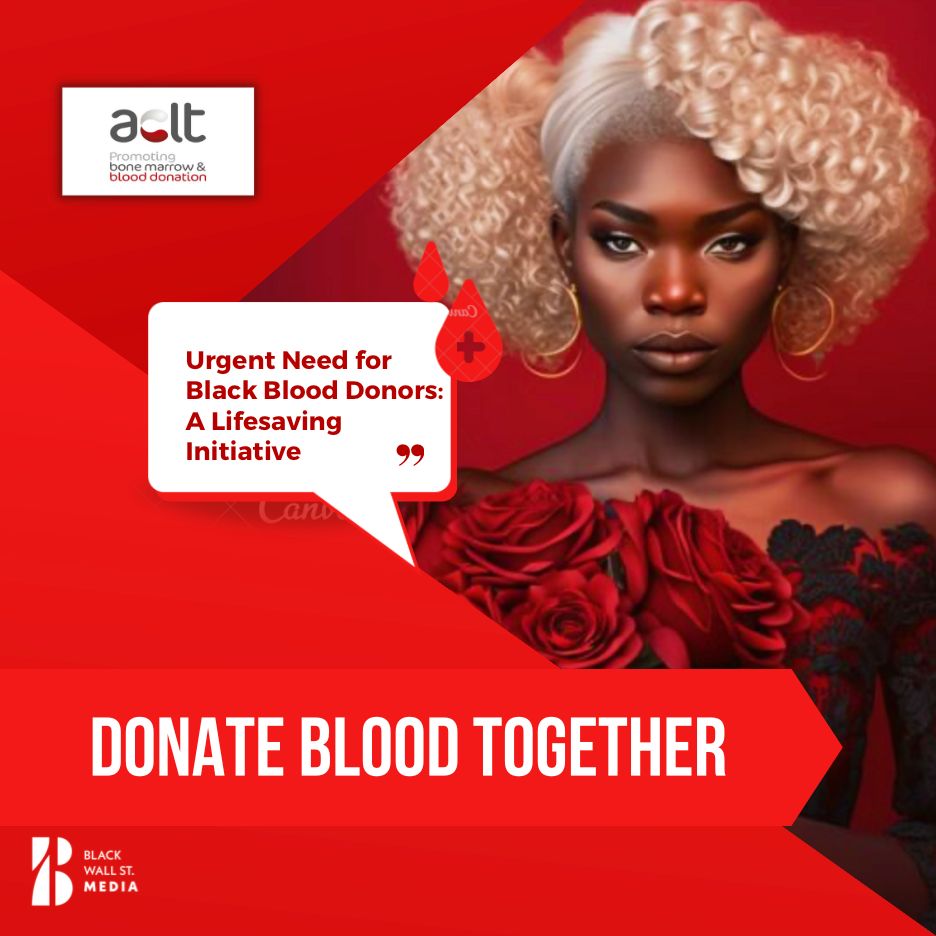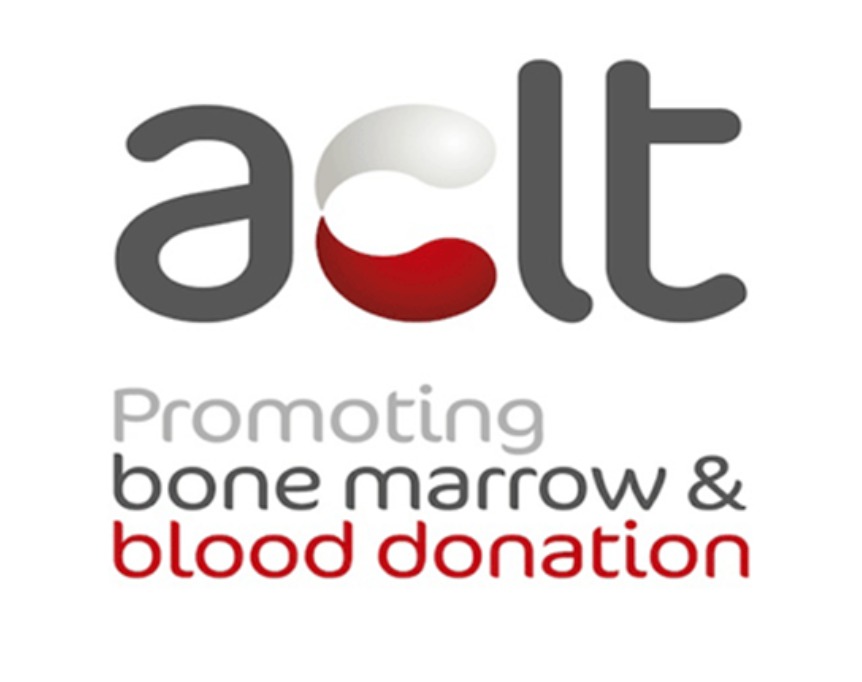HEALTH
Urgent Need for Black Blood Donors: A Lifesaving Initiative"
“Urgent Call for Black Blood Donors! Join the lifesaving initiative to combat rising blood disorders like sickle cell anaemia. Your blood can be the difference between life and death.”
Black Wall St. MediaContributor


Is There A Strong Need For Black Blood Donors?
In every family, there is likely someone who, at some point, has needed a blood transfusion due to various reasons, ranging from accidents to blood disorders.
However, an increasing number of cases, particularly diseases like leukaemia, sickle cell, and anaemia, highlight a critical need for more black blood donors. Contrary to the outdated belief that “we all bleed the same,” the importance of diverse blood donations, especially from the black community, cannot be overstated.
The ACLT a leading Blood cancer/disorder charity dedicated to raising awareness of the severe shortage of donors on United Kingdom Stem Cell, Blood and Organ donor registers.
Promoting Stem Cell (Bone Marrow) and Blood donation
Registering potential donors
Supporting patients and their familiesWhy Black Blood Donors Matter:
While blood transfusions are generally not specific to racial or ethnic groups, certain blood disorders predominantly affect particular communities. Sickle Cell Anaemia, a well-known blood disorder, primarily impacts individuals of African and Caribbean origin. In the UK alone, thousands of sickle cell sufferers require regular blood exchanges to survive. The rare blood subtype Ro, found exclusively in black individuals, is crucial for matching blood suitable for sickle cell patients.
The Challenge and the Solution:
In Britain, around 300 babies are born with Sickle Cell Disorder each year, and the number is rising. Bone marrow and sickle cell cases are on the increase, and the shortage of black blood donors poses a significant challenge in providing life-saving treatment. Registering as a blood donor is a simple process that takes only a few minutes, with details available on the NHS Blood Donor’s website.
The Blood Donation Process:
Once registered, potential donors are contacted by the NHS to arrange a donation appointment.
A short questionnaire determines eligibility, and avoiding alcohol and cigarettes a day or two before the donation is recommended. The donation itself, which involves extracting 470 ml of blood, is swift and painless.
The donated blood is then tested for infections, and donors receive a blood donor card and a letter detailing their blood group.
Safety and Aftercare:
The average adult can safely lose about 3 pints of blood, making the 1-pint donation well within the safety range. The donation process is closely monitored by trained NHS technicians, ensuring donor safety.
After donation, a short rest and refreshments may be needed, with a waiting period of at least 12 weeks recommended before making another blood donation.
Making a Difference:
Becoming a blood donor is a fulfilling experience, knowing that a single donation can save someone’s life. With the rising number of sickle cell cases, the need for black blood and bone marrow donors is urgent.
Registering on the NHS Blood & Transplant Service website or calling 0300 123 2323 is the first step toward making a significant impact and potentially saving a life.
The call to action is clear:
Save a life by becoming a blood donor. In the face of increasing blood disorders and the critical shortage of black blood donors, your contribution can make a profound difference.
Register today and join the effort to ensure a steady supply of diverse blood donations, providing hope and lifesaving treatment for those in need.
Credits:
- Donate at the NHS Blood & Transplant Service here.
- Film produced by Logo St. Marketing.
- NHS info on Sickle Cell Disorder.
Black Wall St. MediaContributor









